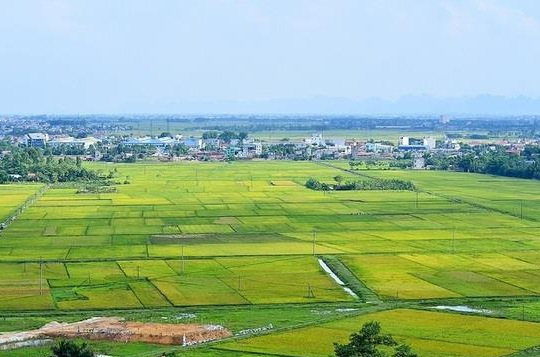Improving the quality of communes, wards and towns meeting legal access standards in Nghe An
(Baonghean.vn) - Implementing Decision 25 of the Prime Minister, the work of building communes, wards and towns that meet legal access standards in the province has had positive changes. Nghe An Newspaper discussed with Mr. Le Ba Thieu - Head of the Department of Legal Dissemination and Education (Department of Justice) about this content.
PV:Could you please tell us the results after more than 2 years of implementing Decision No. 25/2021/QD-TTg of the Prime Minister regulating communes, wards and towns meeting legal access standards?
Mr. Le Ba Thieu:Following the direction of the Ministry of Justice, the Department of Justice of Nghe An province has advised the Provincial People's Committee to issue Plan No. 552/KH-UBND to disseminate the contents of Decision No. 25/2021/QD-TTg and Circular No. 09/2021/TT-BTP throughout the province.
In addition, advise the Provincial People's Committee and the Provincial Council for Coordination of Law Dissemination and Education to issue annual inspection plans and directly establish working groups to inspect records at the probability of a number of commune-level units.
Thereby, pointing out the shortcomings and limitations of the facility and having timely solutions to remove difficulties and obstacles in the implementation process.
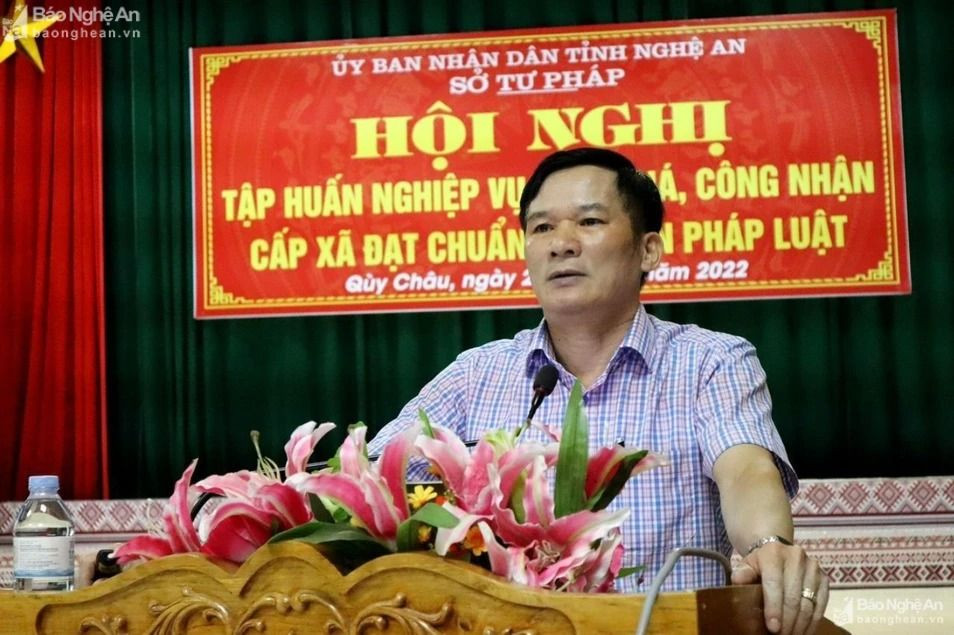
The work of checking communes that meet legal access standards is also carried out during the process of participating in the appraisal of communes that have reached the new rural and advanced new rural targets... In 2023 alone, 29 commune-level units of Vinh city; Nghia Dan, Nghi Loc, Hung Nguyen, Dien Chau, Que Phong, Thanh Chuong, Nam Dan, Quynh Luu, Quy Hop, Anh Son districts and Hoang Mai town... were inspected.
In addition, district-level units also proactively inspected legal access standards at 48 commune-level units.
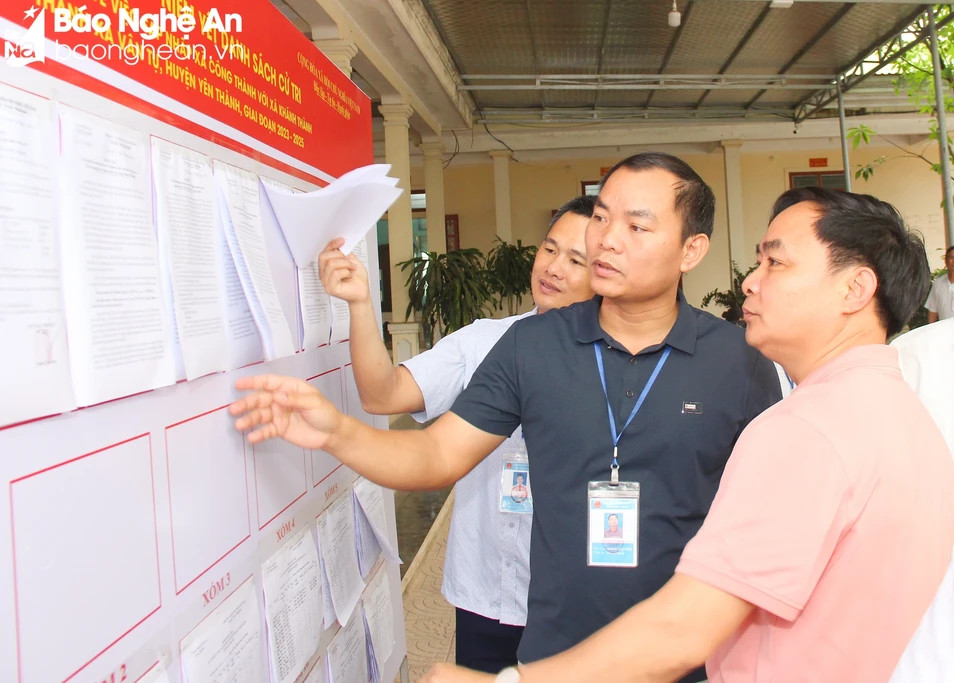
In general, up to now, the work of building communes that meet legal access standards in the province has become more and more systematic; the awareness of leaders of local Party committees and authorities at all levels, especially at the commune level, about this work has been gradually improved. In localities, many units have assigned specific tasks to civil servants to directly implement and be responsible for deploying indicators, synthesizing documents, building evidence files and self-scoring according to the criteria.
The Justice - Civil Status Officer at the commune level has played a good role as a focal point, helping the People's Committee leaders to synthesize documents and propose the District-level Legal Access Standards Assessment Council to review, evaluate, recognize or not recognize.
In 2022, 383/460 commune-level units in the province met legal access standards, reaching a rate of 83.26%; in 2023, 403/460 commune-level units met legal access standards, reaching a rate of 87.61%.Among them, district-level units with high rates of legal access standards are Vinh city, Hung Nguyen, Nam Dan, Tan Ky, Thai Hoa town, Quy Chau, Nghi Loc, Dien Chau, Yen Thanh, Hoang Mai town, and Cua Lo town.
Fully implementing the criteria for assessing legal access standards is important to raise awareness and sense of law compliance among officials and people; ensure citizens' right to access information regarding legal regulations; and contribute to building an increasingly professional and modern grassroots administration.
PV:Despite achieving certain results, the process of implementing the task of building communes that meet legal access standards in the province still has shortcomings and limitations. In some localities, the annual rate of communes that meet legal access standards is still low. So what is the reason, sir?
Mr. Le Ba Thieu:In fact, currently, in some districts, the annual rate of communes meeting legal access standards is still low. For example, in 2003, Con Cuong district had only 1/13 units meeting legal access standards (7.69%); Ky Son had 11/21 units (52.38%); Tuong Duong had 9/17 units (52.94%); Thanh Chuong had 28/38 units (73.68%); Que Phong had 10/13 units (76.92%)... In these units, many communes did not develop supporting documents to request the District Council to evaluate, leading to a low rate of communes meeting legal access standards.
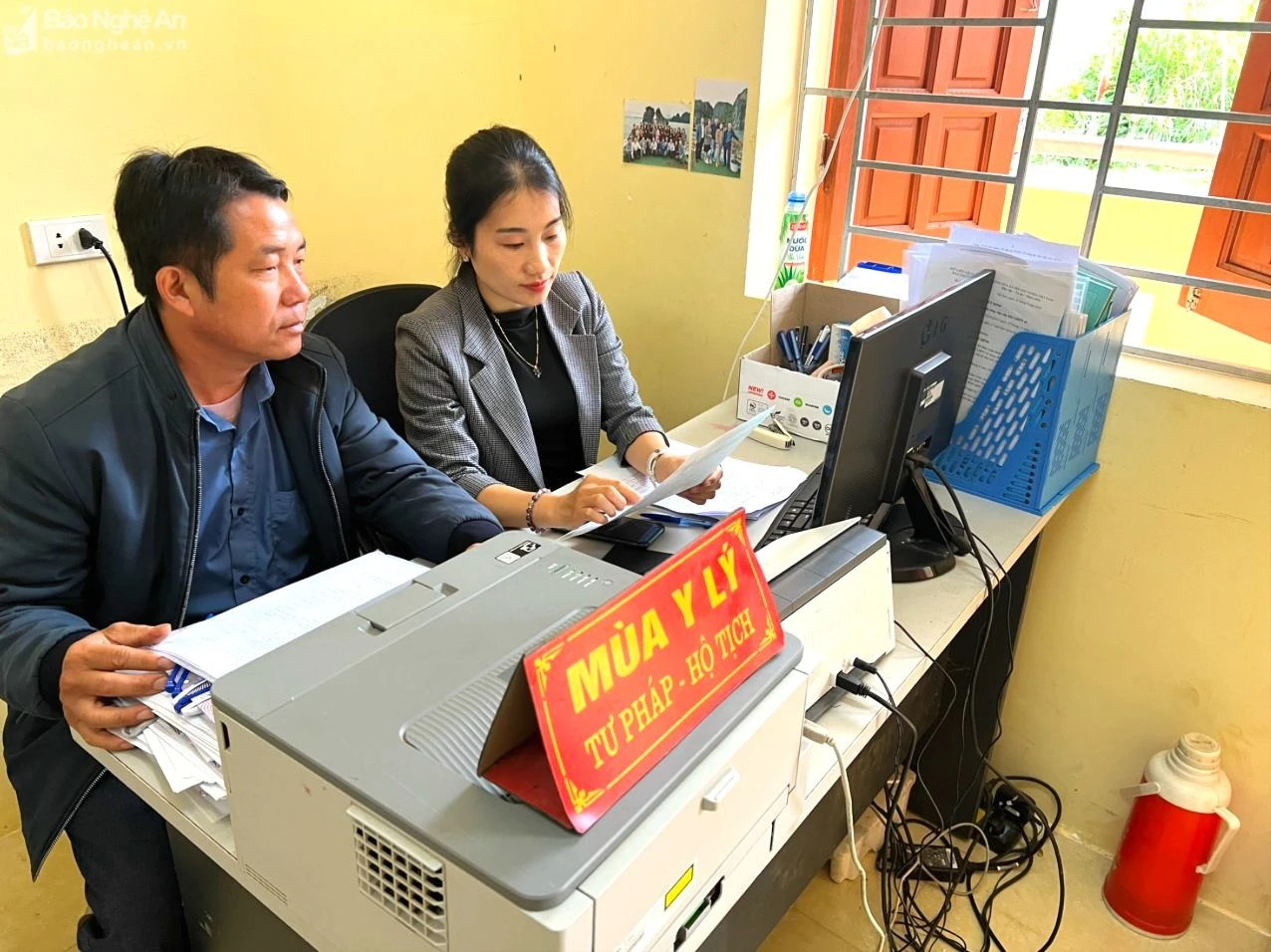
On the other hand, in the process of building the dossier for requesting recognition of standards, the results of self-assessment of indicators and criteria of some units are baseless, civil servants arbitrarily score based on personal feelings, units do not collect enough supporting documents as a basis for self-assessment, or the collected documents are perfunctory. Therefore, the substance in the evaluation and recognition process is not guaranteed.
Some indicators are not implemented in practice, or are not fully implemented, and the information disclosure is not timely and accurate in accordance with legal regulations. The model of legal dissemination, education, and mediation at the grassroots level is still sketchy, cannot be maintained in operation, or has not been summarized or evaluated for replication, so the results achieved are not high.
Some commune-level units self-assess later than the prescribed time; have not applied information technology to collect assessment documents...
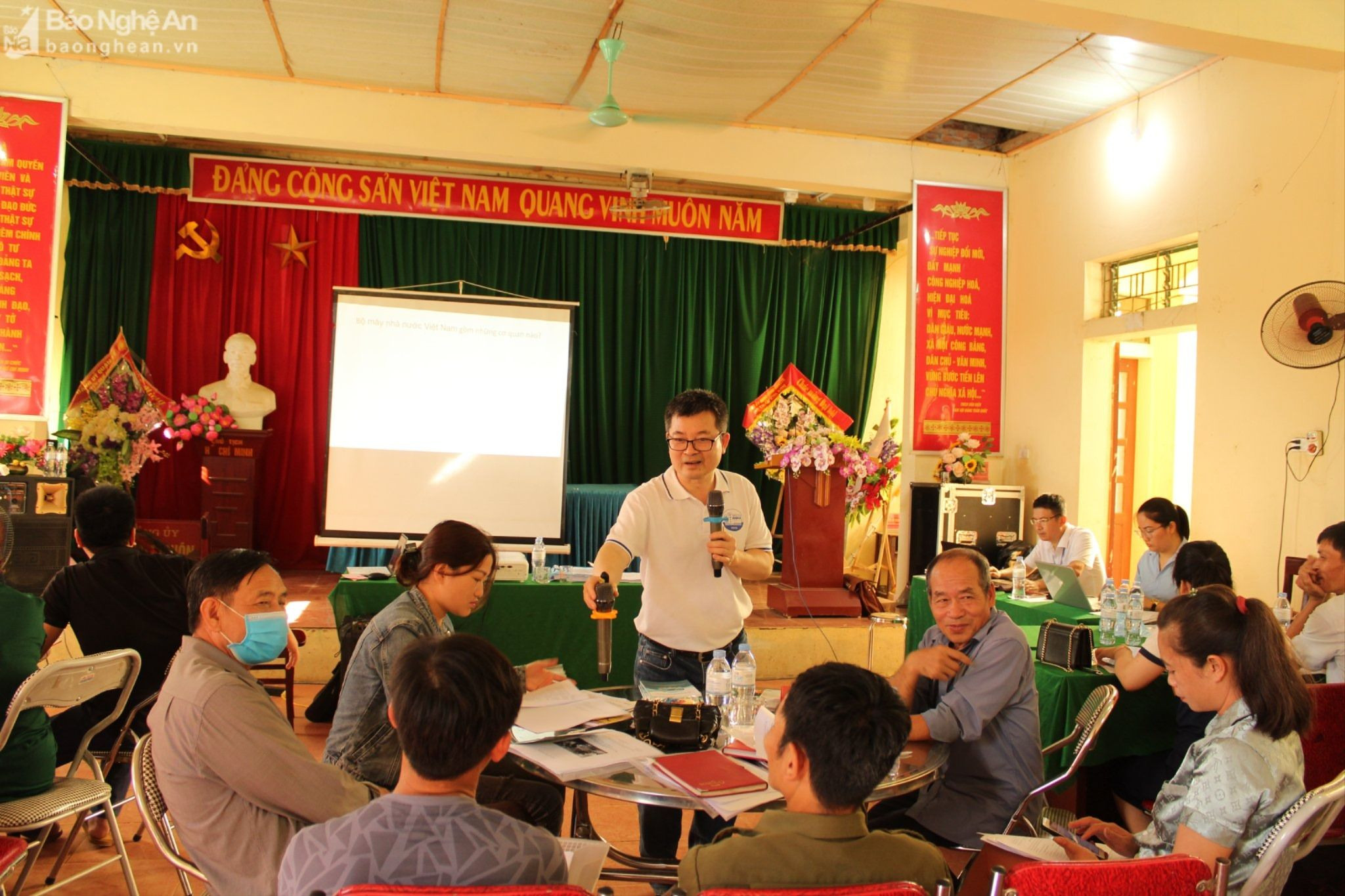
The main shortcomings and limitations are: Some judicial departments, leaders of Party committees and authorities at all levels, judicial and civil status officials have not fully recognized the meaning, role and importance of the work of building commune-level standards for legal access, have not taken people as the center in assessment and recognition, therefore, there is a lack of attention in leadership, direction and implementation advice.
The district-level legal access standards assessment council has not yet promoted its responsibility in monitoring, urging, checking, and evaluating the results of achieving legal access standards at assigned commune-level units and has not yet fully grasped the regulations in the criteria and indicators for assessment.
The assessment content is mainly conducted by the district-level justice department and submitted to the Council members for acceptance, therefore, the results do not reflect the reality.
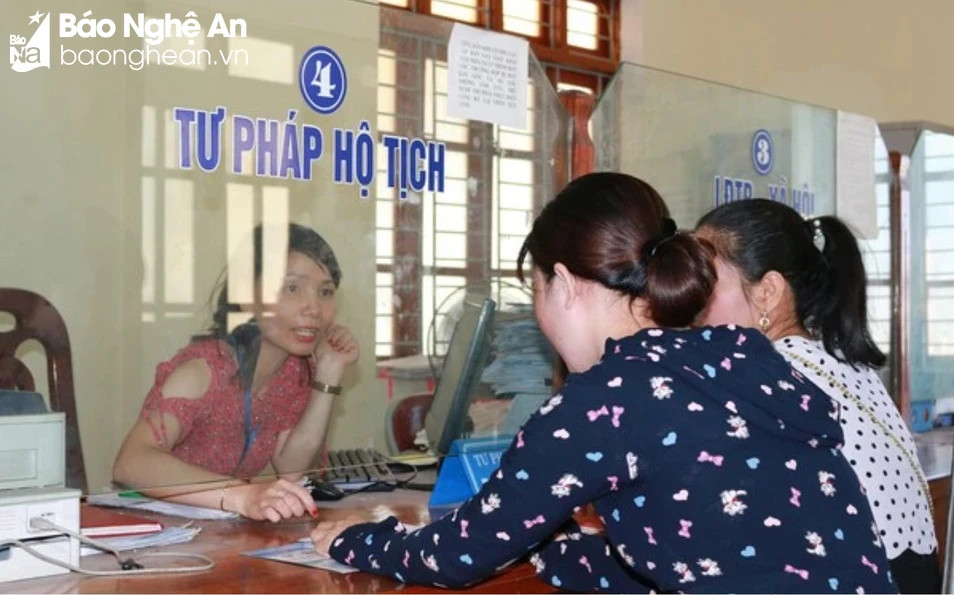
On the other hand, the communal-level civil servants in general and the judicial and civil status civil servants in particular have to undertake a very large workload, while the capacity of some cadres and civil servants is still weak, the budget allocation for activities to build commune-level legal access standards is limited, and there is a lack of resources to implement them systematically and in accordance with regulations. Some communal-level units in mountainous districts have not paid attention to allocating funds for the dissemination of legal knowledge and mediation at the grassroots level, so these indicators in the legal access standards have not achieved high results.
PV:So in the coming time, to overcome the above shortcomings and limitations, what specific solutions are needed, sir?
Mr. Le Ba Thieu:In 2024, Nghe An province sets a goal of continuing to improve the quantity and quality of communes meeting legal access standards associated with building new rural areas and civilized urban areas. To achieve this goal, it is necessary to carry out the following tasks and solutions well:
One is,Raise awareness among leaders of Party committees and authorities at all levels about the importance of implementing the work of building communes that meet legal access standards in order to have specific direction and assignment of tasks; regularly check, urge and remind assigned civil servants to monitor criteria and targets.
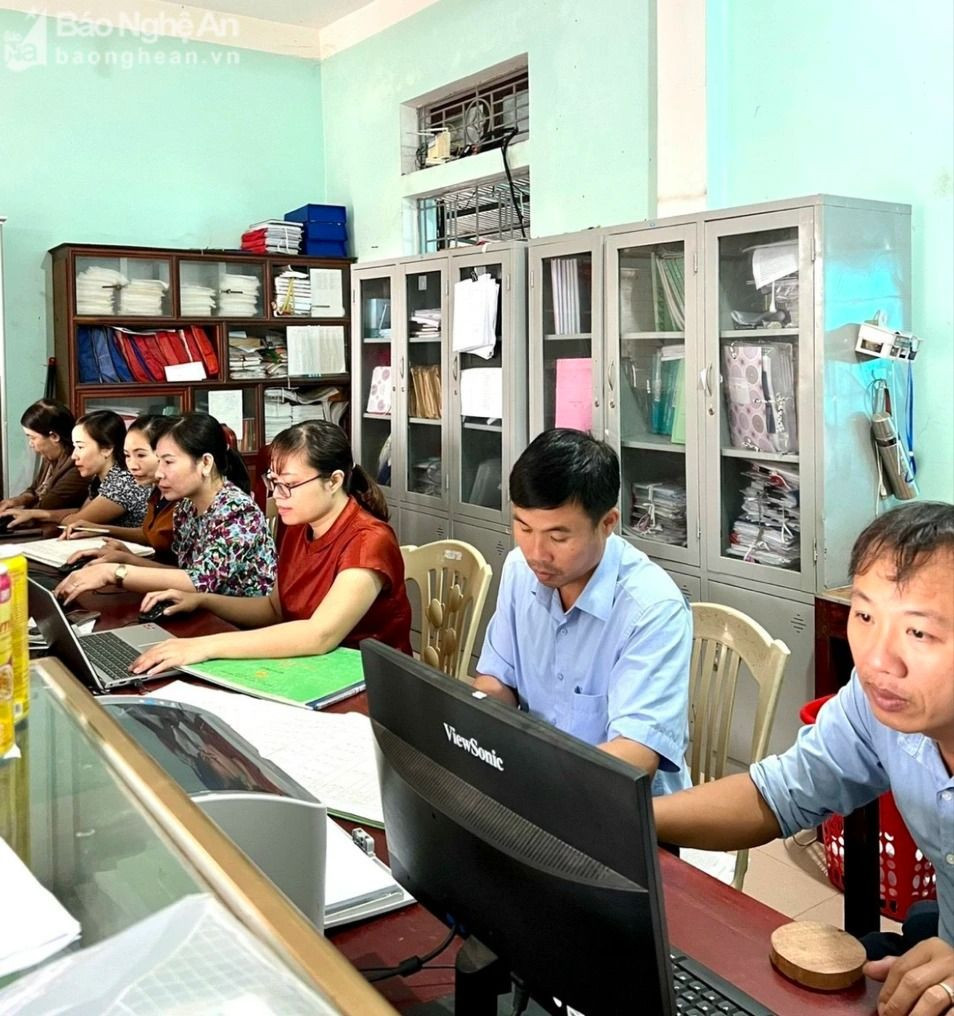
Pay attention to allocating funds for legal access standards and individuals performing this task according to Circular No. 56/2023/TT-BTC of the Ministry of Finance regulating the preparation of estimates, management, use and settlement of funds to ensure the dissemination and education of law, legal access standards and mediation at the grassroots level. At the same time, there are solutions to mobilize social resources to improve the effectiveness of this task.
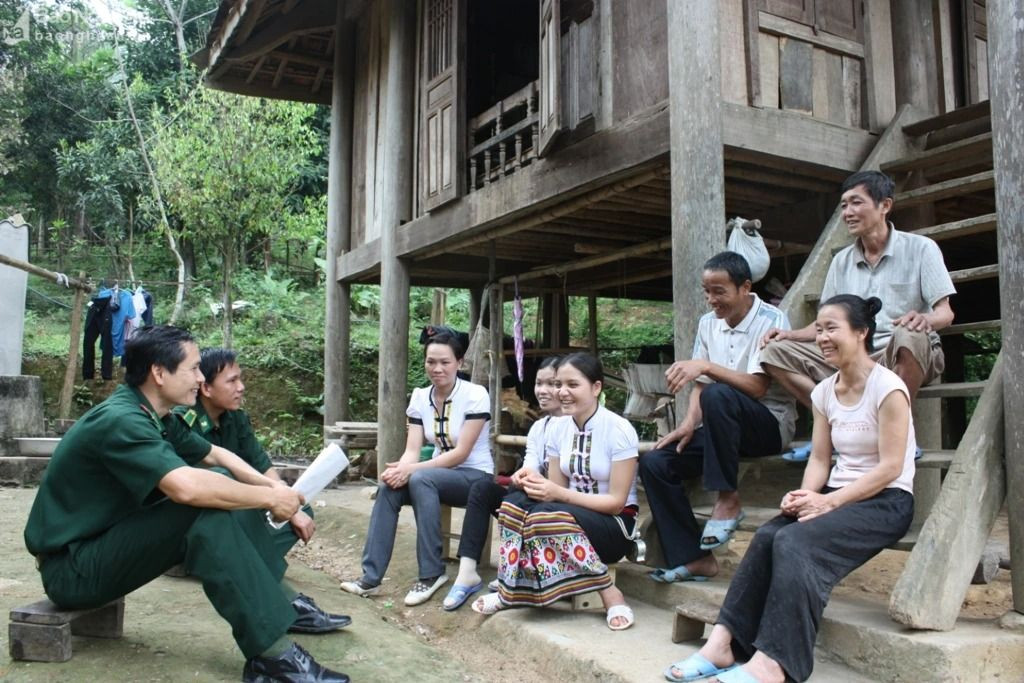
Second,Civil servants of justice and civil status need to arrange their work scientifically, collect supporting documents for the targets and criteria they are in charge of from the beginning of the year to avoid being passive and confused. In addition, they need to increase the application of information technology in collecting assessment documents and provide timely advice to commune-level leaders to direct other civil servants to coordinate effectively in the process of performing their tasks.
Third,Improve the quality and replicate typical models and good practices in the dissemination, education of law and mediation at the grassroots level; effectively implement the coordination regulations with district-level people's courts and district-level lawyers' associations.
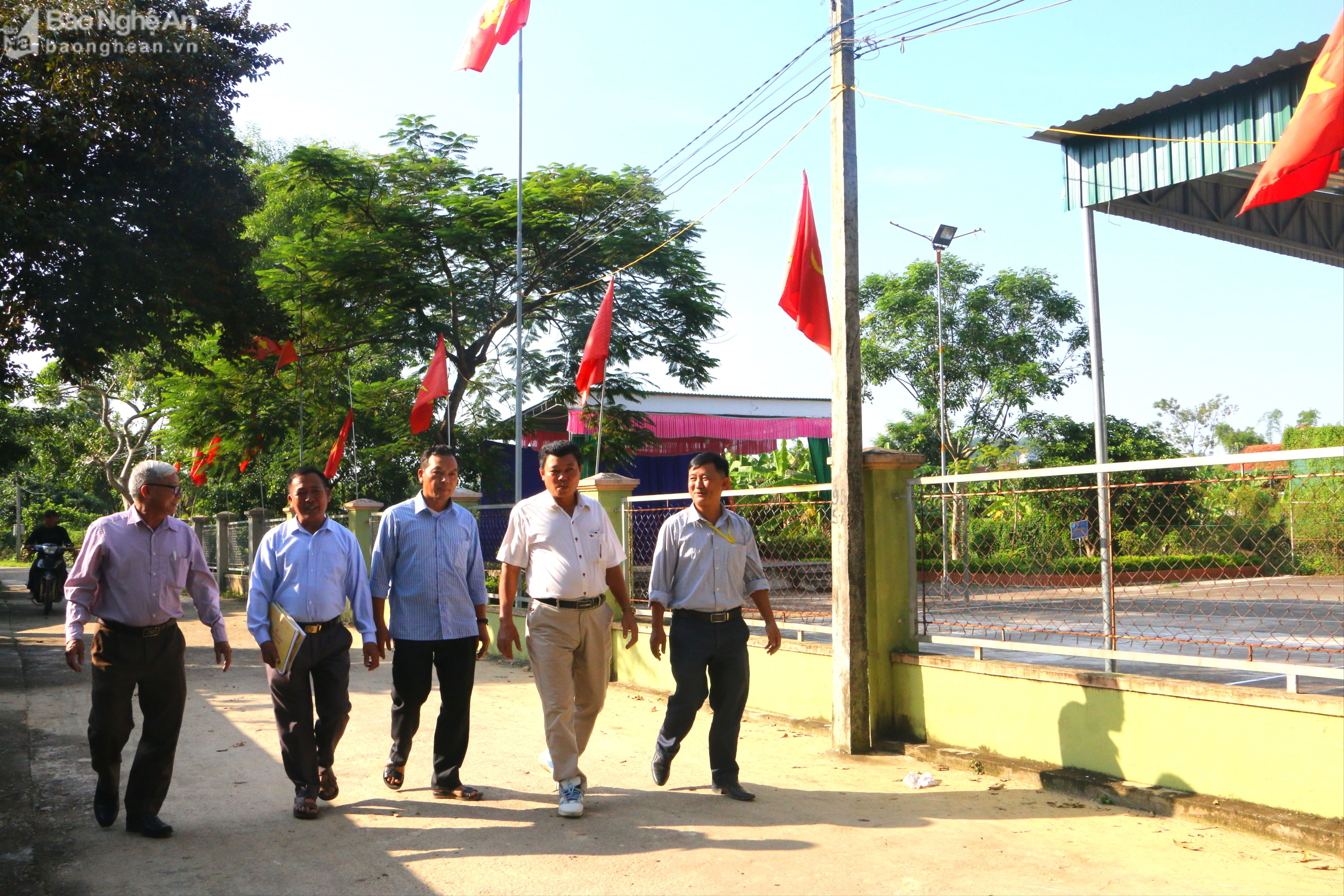
Fourth,Local Party committees, authorities and the judiciary need to coordinate to strengthen inspection work to promptly point out shortcomings and limitations at the commune level, and at the same time, propose more effective implementation solutions for each indicator.
Organizing a preliminary and final review to comprehensively evaluate results, identify difficulties and obstacles, clarify causes, draw lessons; deploy solutions to mobilize the participation of the entire political system to effectively implement regulations on commune-level standards for legal access.
Thereby, contributing to improving the effectiveness and efficiency of State management at the grassroots level and better implementing people's rights to access information and access to law.
PV:Thank you!


